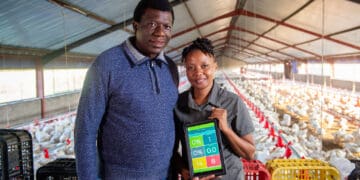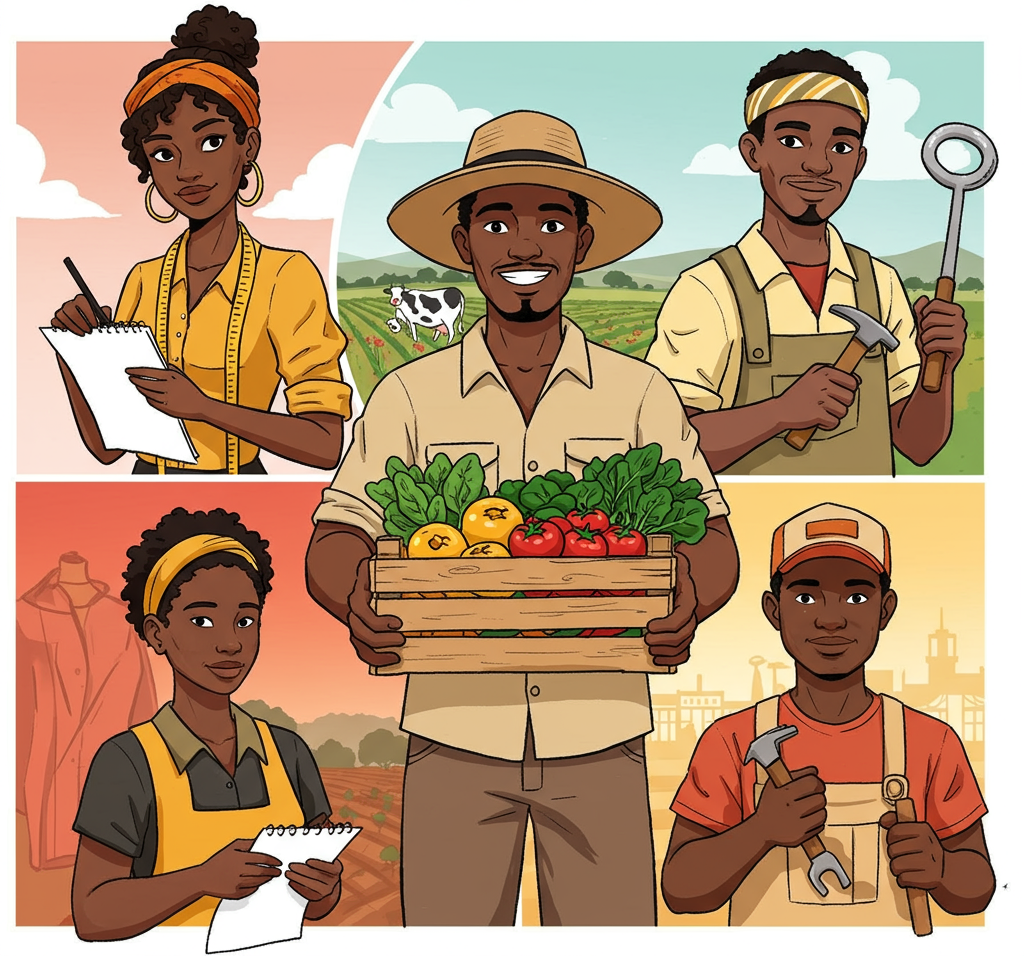Small-scale farmers in drought-stricken provinces are finding hope and profit in unexpected crops.
As climate change threatens traditional farming practices, sorghum and millet are fast becoming lifelines for entrepreneurs across Limpopo, the Free State and North West.
Once seen as subsistence staples, these hardy grains are now powering a quiet transformation in South Africa’s rural economy.
For years, Matilda Ralepeli, a farmer from outside Mafikeng, struggled with maize.
“Two years ago, my whole crop dried up,” she recalls. “I lost R15,000 trying to rescue it. It broke my heart.”
That failure forced her to experiment with sorghum. On her 1.5-hectare plot, she harvested 3.2 tonnes of grain last season.
“I earned R41,600,” she says. “After paying workers and transport, I still took home R26,000. That is money I never saw when I planted maize.”
Her story is becoming increasingly common. According to data from South Africa’s Conservation Agriculture Farmer Innovation Programme, smallholders growing sorghum under low-input conditions in semi-arid areas are seeing net profits of around R18,000 per hectare. Millet offers similar returns, with reduced risk due to its ability to withstand dry conditions and poor soils.
Retail prices for millet and sorghum range between R23.12 and R67.07 per kilogram in health and organic food stores, according to market tracking platforms such as Selina Wamucii.
These prices reflect consumer-facing sales in niche retail spaces. By contrast, bulk farm-gate prices are often significantly lower.
For instance, the Heritage Grains Co-operative in Limpopo sold its sorghum harvest at R9 per kilogram last season. This price difference reflects the added value from packaging, processing, and retail positioning.
Farmers who belong to organised co-operatives and have access to post-harvest processing facilities can earn more by selling directly to consumers or packaging the grains themselves.
With average yields of 2.5 to 3.5 tonnes per hectare, these farmers can achieve gross revenues of up to R42,000 per hectare, depending on quality, market access, and value-add practices.
For small businesses like Heritage Grain Processors, this shift is also creating new supply opportunities.
Naledzani Foods, a wellness food company in Midrand, sources 350 kilograms of millet every month from farmers in North West and Limpopo.
“Our demand has doubled in a year,” says founder Dr Sipho Moeketsi.
“Health-conscious consumers are asking for more unprocessed grains. We have secured new contracts with two retailers who specifically want South African-grown millet.”
It is not just about income. These crops also require fewer inputs. Where maize needs up to 600 millimetres of rainfall and high fertiliser usage, sorghum can thrive on as little as 400 millimetres.
That means reduced costs for seed, water, and chemicals, making them ideal for micro-farmers operating on tight margins.
In Leeto village, Limpopo, a group of 10 women formed the Heritage Grains Co-operative. They farm a total of 18 hectares of land.
Last season, they harvested 48 tonnes of sorghum, sold at R9 per kilogram. After deducting expenses, they collectively cleared R280,000, which was enough to reinvest in tools, cover school fees, and expand their operations.
However, despite growing interest and promising returns, the sector still lacks critical support.
Many farmers face storage shortages and poor transport infrastructure.
Access to credit remains limited, and there is little formal market data available, which makes it difficult for banks and investors to assess the viability of financing such operations.
According to rural development NGOs, these gaps prevent many smallholders from expanding beyond subsistence levels, despite visible market demand.
NGOs are also supporting farmer training, input access, and seed distribution to boost productivity. According to agricultural economists, with better infrastructure and market transparency, sorghum and millet could play a much greater role in South Africa’s climate-resilient agricultural economy. For now, these grains are no longer the crops of the past. They are feeding families, generating incomes, and proving that climate adaptation at the micro level can create real economic opportunity.
lazola@vutivibusiness.co.za

Vutivi is a digital business news platform that will serve the Small Medium Micro Enterprises in the form of writing stories that will be informative about their sector. We pledge to deliver a commercially sustainable, world-class digital financial and business news service that is a must-read while being responsive to readership needs and tailor-making packages for SMMEs.























































